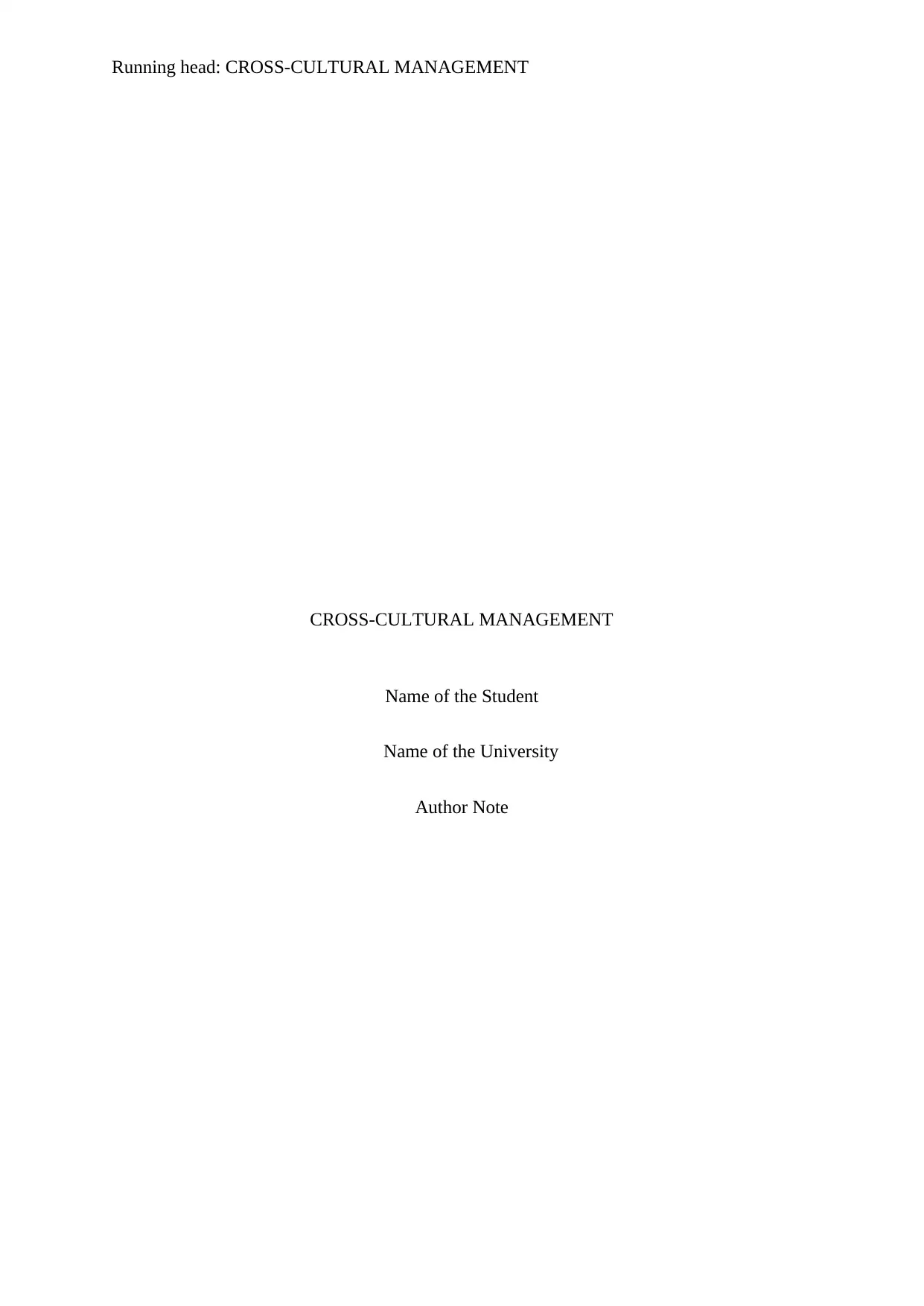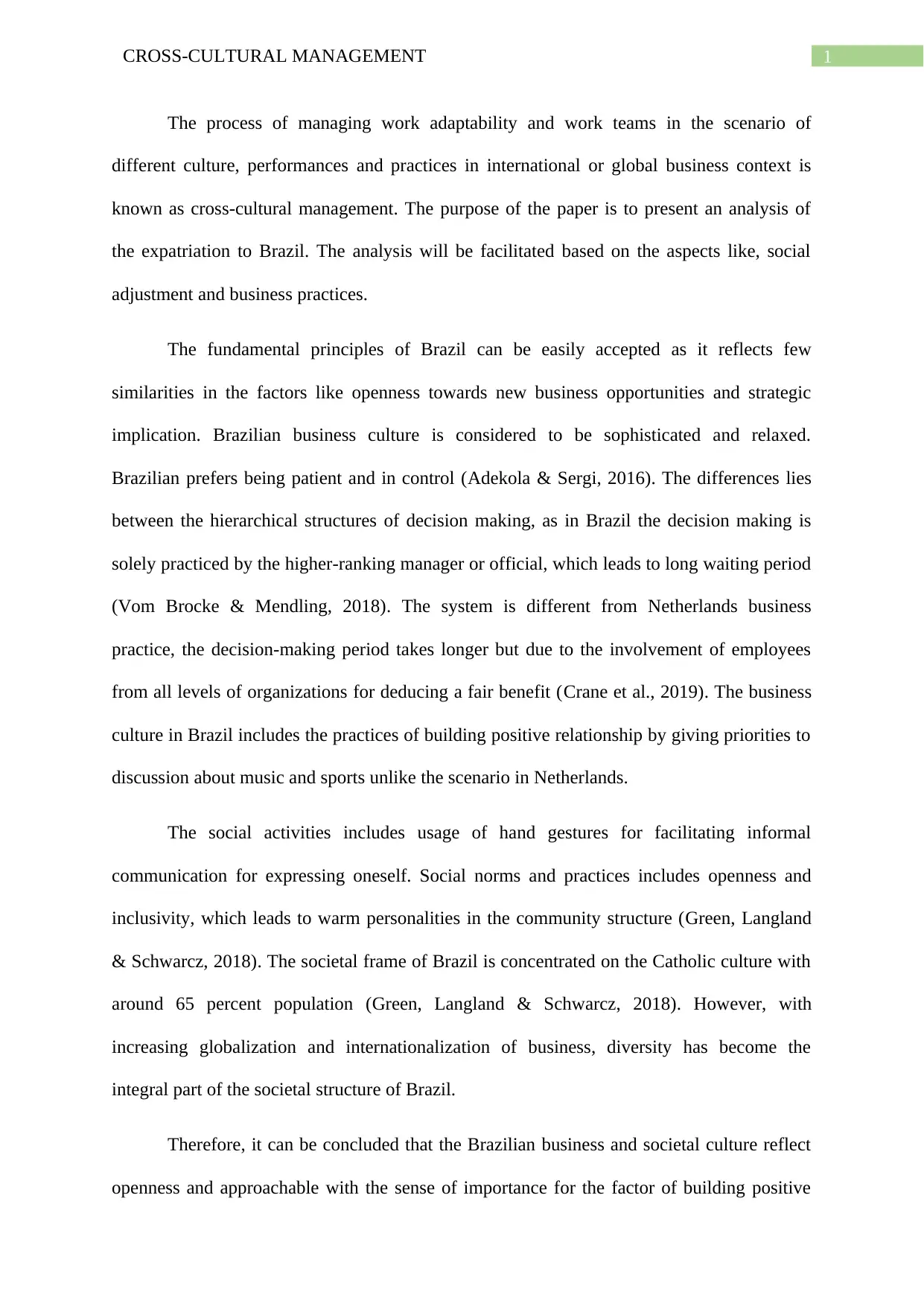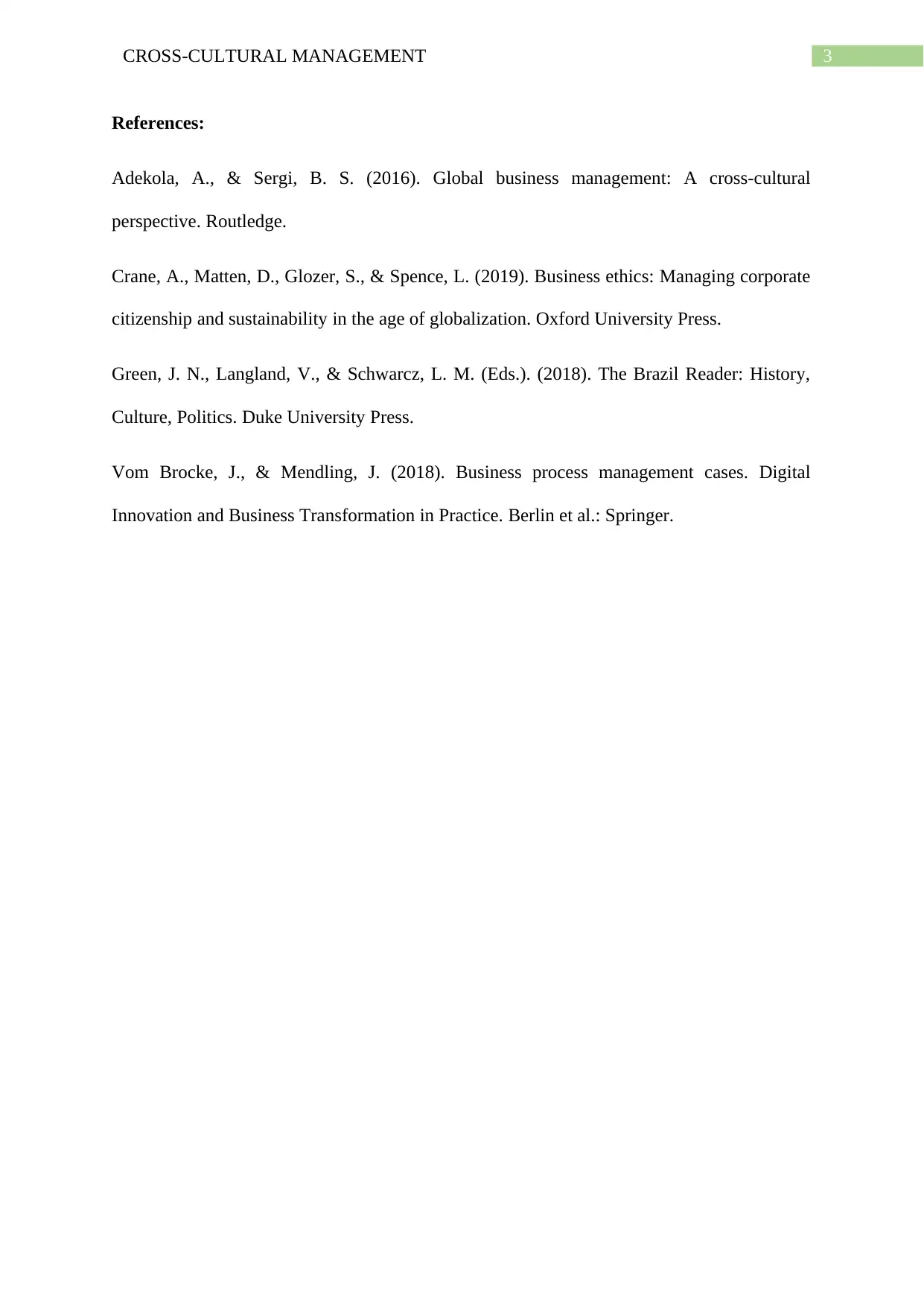Cross-Cultural Management: Analysis of Expatriation to Brazil
VerifiedAdded on 2023/04/21
|4
|529
|334
AI Summary
The process of managing work adaptability and work teams in the scenario of different culture, performances and practices in international or global business context is known as cross-cultural management. The purpose of the paper is to present an analysis of the expatriation to Brazil, focusing on social adjustment and business practices. The fundamental principles of Brazil can be easily accepted as it reflects few similarities in the factors like openness towards new business opportunities and strategic implication. Brazilian business culture is considered to be sophisticated and relaxed. The differences lie between the hierarchical structures of decision making, as in Brazil the decision making is solely practiced by the higher-ranking manager or official, which leads to long waiting period. The system is different from Netherlands business practice, the decision-making period takes longer but due to the involvement of employees from all levels of organizations for deducing a fair benefit. The business culture in Brazil includes the practices of building positive relationship by giving priorities to discussion about music and sports unlike the scenario in Netherlands. The social activities include usage of hand gestures for facilitating informal communication for expressing oneself. Social norms and practices include openness and inclusivity, which leads to warm personalities in the community structure. The societal frame of Brazil is concentrated on the Catholic culture with around 65 percent population. However, with increasing globalization and internationalization of business, diversity has become the integral part of the societal structure of Brazil. Therefore, it can be concluded that the Brazilian business and societal culture reflect openness and approachable with the sense of importance for the factor of building positive relationship in the work environment. The societal culture of Brazil reflects openness as the business culture with the factor of inclusivity.
Contribute Materials
Your contribution can guide someone’s learning journey. Share your
documents today.
1 out of 4




![[object Object]](/_next/static/media/star-bottom.7253800d.svg)